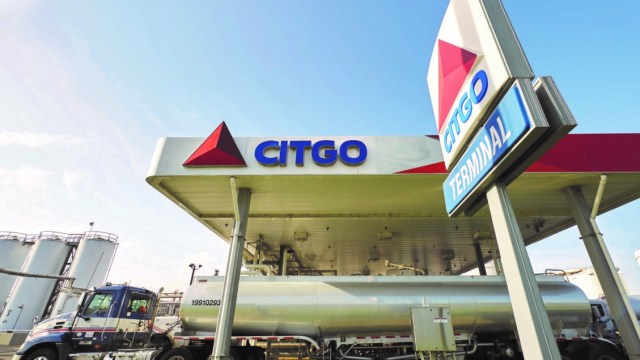
The decision of renewing the license that would save the company from falling into the hands of its creditors depends on one man. That man has his mind on other issues, and his name is Donald Trump.
By Caracas Chronicle – Pilar Navarro
Nov 13, 2020
On October, 16th, judge Katherine Polk Failla of the U.S. District Court Southern District of New York, issued a decision declaring that the PDVSA 20 bond is legal, valid, and enforceable, which means holders can pursue recovery against the 50.1% of the CITGO Holding shares committed as collateral. This is an important step in the creditors’ long race to obtain the Venezuelan crown jewel: CITGO.
After Polk Failla’s ruling, the only thing standing between Citgo and bondholders is License 5E, which – funny enough – expires the last day of Trump’s term, on January 19th, 2021. Thus, the renewal of the license could be the Trump administration’s last gift to Venezuela. On the other hand, a non-renewal could be its last curse.
However, PDVSA 20 bondholders are not the only creditors after CITGO. There are currently 10 cases in U.S. courts seeking to attach Venezuela’s scarce external assets, which makes holding onto CITGO practically a lost cause.
PDVSA 20 Case: A Hail Mary
Venezuela first missed coupons on ELECAR bonds on October 10th, 2017, and on sovereign and PDVSA bonds on October 13th, 2017, but two years passed before the much anticipated default on the PDVSA 20 bond finally materialized on October 28th, 2019—when the National Assembly’s interim administration missed a $913 million payment. This bond holds special significance within the country’s debt universe due to its lien of over 50.1% of the shares of CITGO Holding, parent to the U.S.-based PDVSA subsidiary CITGO.
On October, 29th, a day after the default, the Guaidó – appointed PDVSA and PDV Holding representatives filed a lawsuit in U.S. courts seeking to bar the seizure of the CITGO Holding shares and declare the notes, and all related documentation, illegal.
The National Assembly’s argument stood on Article 150 of the national Constitution, which states that the contracts of national public interest conducted with foreign entities require the approval of the legislative branch. It also relies on Articles 311 and 312 of the Constitution, which include broadly defined requirements that indebtment must be sustainable and prudent. In the latter two articles, the National Assembly claims that the 2016 swap was detrimental to public finances and thus contrary to these broad requirements.
On its part, MUFG Union Bank and Glas Americas—as trustee and collateral agent for the bond—argued that NY law ruled over all matters involving the validity of the issuance and, thus, the bond is entirely legal.
The lawsuit always had very low probabilities of success and was described as a Hail Mary from the first day. In fact, prominent legal scholar Mitu Gulati said, “[The Guaidó team] needs to recognize that it is a long shot. […] They are really gambling… Creditors gave them money and got the collateral fair and square.”
The filing heavily relied on political arguments, especially on the idea that a potential sale of CITGO would harm Venezuela and PDVSA irreparably.
In the end, judge Polk Failla ruled in favor of the bondholders and their representatives noting that the applicable law ruling over the contract is NY law. Additionally, despite recognizing the National Assembly as the only legitimate branch of government (retroactively) from the moment it was elected in 2015, the judge found that the National Assembly’s resolutions denouncing the bond swaps in 2016 didn’t invalidate it because they didn’t plainly reject the bonds nor refer to PDVSA debt directly. Instead, it referred to the “National Executive”.
Polk Failla said Venezuela’s representatives “have sought to transmogrify ambiguously worded 2016 resolutions into judicially enforceable takings via the magic of 2019 hindsight,” and “Plaintiffs cannot escape the fact that it was not until the October 2019 Resolution—[…] the very month in which substantial interest and principal payments fell due under the Governing Documents—that the National Assembly resolved that the Exchange Offer and the 2020 Notes were contracts of national public interest and had violated Article 150.”
Nonetheless, the current sanctions regime bans the transfer of the shares, which effectively means that, even if the PDVSA 20 bondholders get a judgment to seize the equity, they can’t enforce it since License 5E prohibits “transactions related to the sale or transfer of CITGO shares in connection with the PDVSA 2020 8.5% bond” until January 29th, 2021.
Crystallex: the Front Runner
Probably the most famous case involving Venezuela’s creditors is the Crystallex case. The Canadian gold miner is seeking to enforce a $1.4 billion arbitration award granted by the ICSID in 2014. Back in August 2018, the company (actually, a hedge fund that owns the mining company) proved in a Delaware court that PDVSA served as an alter-ego of the Venezuelan government and received a writ to attach PDV Holding’s (PDVH) shares to enforce the award. Guaidó’s PDVSA appealed and lost in July 2019.
…
Read More: Caracas Chronicle – Living without CITGO: Why Venezuela may lose its crown jewel
…

